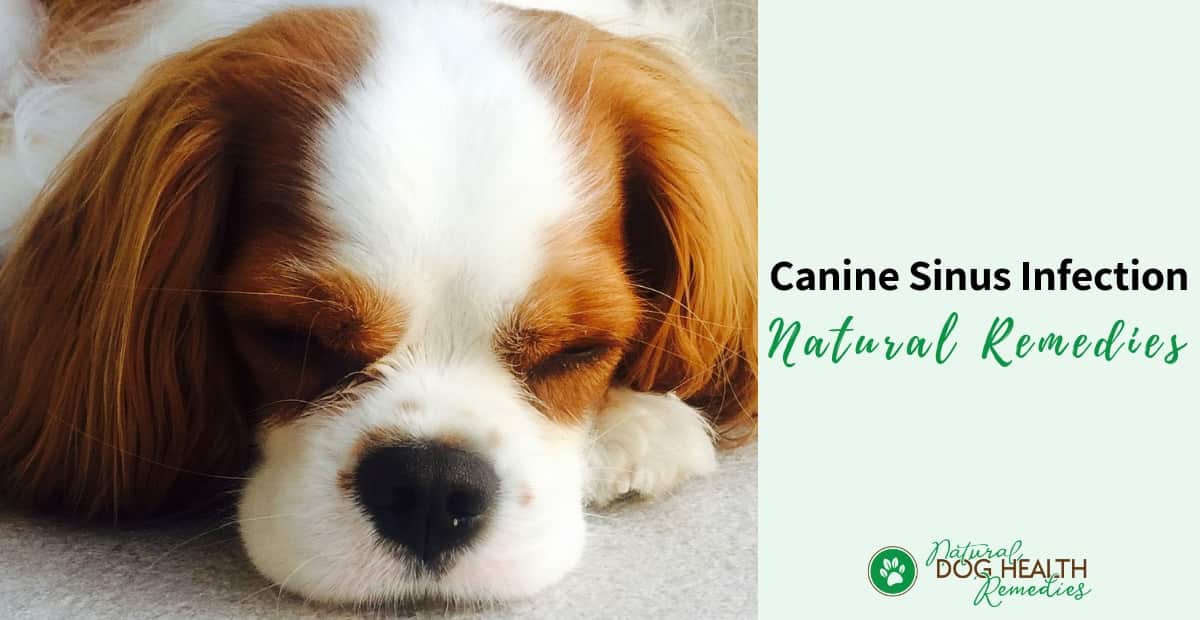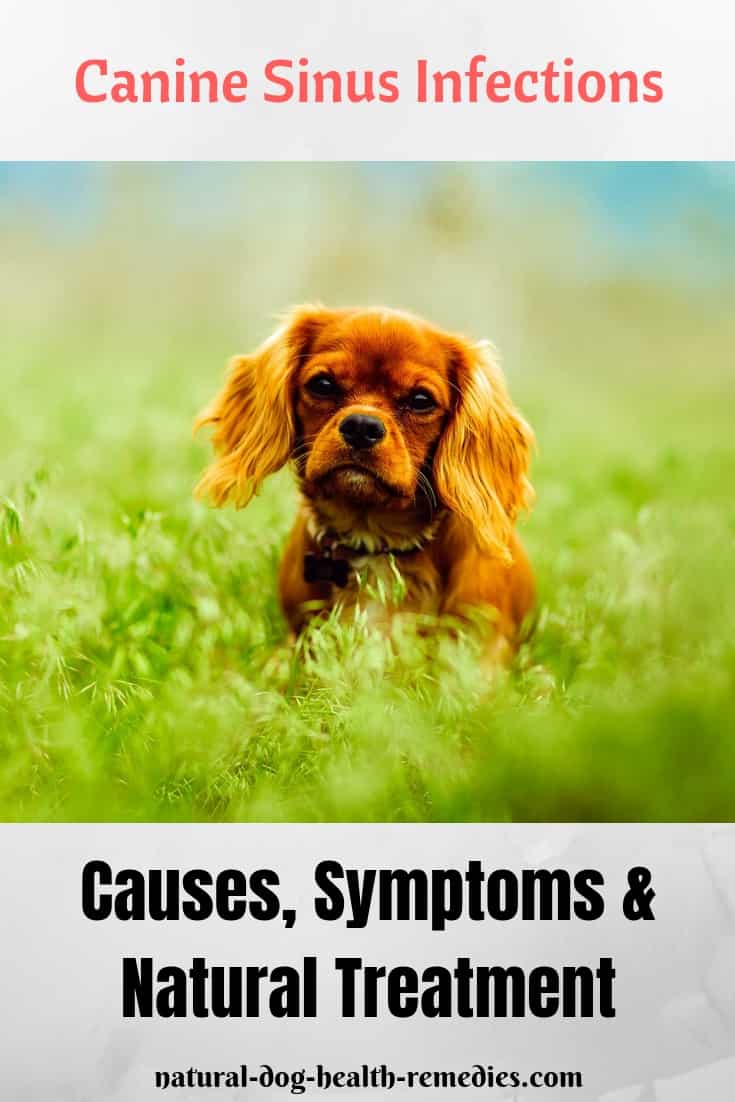Canine Sinus Infection
(FTC Disclosure: If you make a purchase via a link on this page, I may receive a small commission, at no added cost to you.)

Dogs' Sinuses & Sinus Infections
Do dogs have sinuses and can they get sinus infections?
The answer to both questions is Yes!
A dog's sinuses are the nasal cavity - the air chambers in the bone behind the area above the eyes and behind the cheeks.
When the lining of the passages in the nasal cavity of a dog become inflamed, the dog is said to have a sinus infection.
Symptoms shown by canine sinus infection are really heightened activity in the body trying to maintain a buffer and an open airway.
For example, the body produces nasal discharge by using mucus to trap dirt and debris and to clean out bacteria. Small hairlike filaments called cilia move the mucus outward, forcing the discharge to the outside with the aid of sneezing and snorting.
Dog Sinus Infection Symptoms
If you suffer from sinus problems, you will know the symptoms! Common symptoms of sinus infection in dogs are similar to those in people, and include:
- Sneezing
- Eye and nasal discharge
- Postnasal drip causing coughing and gagging
- Bad breath
- Sometimes nosebleeding
A dog with a sinus infection may experience pain or pressure in the forehead and around the eyes and he may lose his appetite. Sometimes, a fever may be present.
Causes of Canine Sinus Infections
The most common causes of sinus infections in dogs are due to environmental influences, such as:
- Allergens (e.g. polluted air, cigarette smoke, etc.)
- Insect bites and stings
- Microbial infections (such as brought on by bacteria, virus, or fungus)
Sinus infection in dogs can also be secondary to other health disorders such as an abscessed or decayed root of an upper canine tooth, or tumors.
Generally speaking, young dogs are more prone to microbial infections, whereas sinus infections in older dogs tend to be caused by tumors or dental problems.
Long nosed dogs seem to be more prone to the fungal and cancerous causes of sinus infections. Dogs of all ages that suffer from asthma or have a weak immune system are more prone to sinus problems.
Dog Sinus Infection Treatment
 Conventional treatment of a canine sinus infection usually involves the use of anti-inflammatory drugs or antibiotics. We all know that long-term use of these drugs causes adverse side-effects to our dogs. In addition, these drugs may not address the underlying problems.
Conventional treatment of a canine sinus infection usually involves the use of anti-inflammatory drugs or antibiotics. We all know that long-term use of these drugs causes adverse side-effects to our dogs. In addition, these drugs may not address the underlying problems.
A better approach is to have a thorough medical check-up to identify the root cause of the sinus infection.
If the infection is secondary to another health problem, then that health problem should be dealt with. For example, a sinus infection secondary to an abscessed tooth or a tumor will not go away if the tooth or the tumor is not being treated.
The bottom line is: identify the root cause of a sinus infection first. If you don't do that, you may be neglecting your dog's real needs.
Natural Remedies for A Canine Sinus Infection
If your dog is suffering from a sinus infection, you can use natural remedies such as herbs to help reduce inflammation. This can relieve his symptoms while he is being treated for the underlying cause.
In addition, natural home remedies can be used to strengthen the dog's immune system.
Herbs for Dog Sinus Infections
This herbal formula contains a number of herbs (such as elderberry, licorice, lemon balm, lomatium, and usnea lichen) good for boosting the immune system and supporting sinus health.
If your dog is suffering from a sinus infection, this product can most likely help to make him feel better and more comfortable. The best thing is, it does not cause any nasty side-effects!
In addition, if your dog's nose has become red and irritating because of the nasal discharges resulting from sneezing, you can apply an ointment that contains calendula to the affected area(s).
I like this healing cream:
It contains herbal extracts of calendula, goldenseal, chamomile, and comfrey, as well as soothing ingredients such as shea butter and aloe vera. Good to have for skin irritations, minor cuts, abrasions, etc.
Essential Oils to Help Dogs with Sinus Infections
Use essential oils to help your dog relax and breathe easier. Essential oils that have antibacterial and antiviral properties (e.g. lavender, eucalyptus, niaouli) are especially beneficial.
To calm your dog, use also Roman chamomile essential oil. Use any combination of these oils in a vaporizer or diffuser in the room where you dog rests.
ReferencesEldredge, et al. Dog Owner's Home Veterinary Handbook 4th edition (Wiley Publishing, 2007).
C.J. Puotinen, Natural Remedies for Dogs and Cats (Keats Publishing, 1999).
M.L. Wulff-Tilford and G.L. Tilford, Herbs for Pets (Bowtie Press, 1999).





